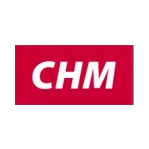In emergency situations
Immediately seek medical care. Getting well is your first priority. When your condition is stable, you, a friend or a family member responsible for your care can follow the steps under “General information” below.
If your condition is not critical but requires immediate care, consider if an urgent care center will meet your needs (emergency rooms are usually more expensive than urgent care centers—and it can take longer for you to be seen).
In non-emergency situations
1. Get connected to CHM Care Solutions. With a collection of specialized care components to support your body, mind, and spirit, we’re here to help you feel your best. Our solutions address specific types of medical needs, such as maternity, surgery and cancer. For example, if it’s a general health issue, try using your access to CHM’s Virtual Care Solution (VCS). With VCS, you can conveniently talk to a board-certified doctors via video. The best part is that virtual visits are included as part of your membership! Commonly addressed medical conditions include respiratory infections, cold and flu symptoms, allergies, skin irritations, pink eye, and much more.
2. Consider shopping around for healthcare providers in your area. Many healthcare providers reduce their charges for self-pay patients. Though as a CHM member, you may go to any hospital or doctor’s office, selective “shopping” helps lower the cost of your medical care because you often can receive the same service at a lower price. The only note when choosing a provider is to make sure the care they provide falls under the CHM Guidelines.
3. Follow the steps under “General information” below.
General information
Be sure to also visit our provider interaction page.
1. CHM is not insurance, so inform your healthcare provider(s) that you’re a self-pay, uninsured patient. Tell your providers you would like to be billed directly with itemized medical bills.
An itemized bill contains:
- The patient’s name;
- The date of service;
- The place of service;
- The procedural (CPT) codes (or description of services rendered);
- An itemized list of charges.
Your CHM card is not an insurance card. However, if your provider has a prearranged discount with CHM (see the “CHM friendly-providers” lookup tool on your Member Portal), show your card to your provider to identify yourself as a CHM member to take advantage of the discounts.
2. Ask for a discount (bill reduction). Build a relationship with your provider(s). Asking for a self-pay or uninsured discount is asking for the same consideration that insured patients receive (due to discounted rates negotiated by their insurers). Many providers will extend a discount to patients requesting a reduced rate because it usually means they receive faster payment and experience less hassle and paperwork.
3. Prior to paying bills totaling $1,000 or more from an individual healthcare provider, please contact our Member Advocate team by calling 800-791-6225 when the following circumstances apply:
- You’re unable to obtain a self-pay discount
- You obtain a discount, but the provider requires payment upfront or has a deadline for payment
4. Apply for any financial assistance available. Most hospitals are required to provide certain types of medical care for free or at a reduced cost. As self-pay, uninsured patients, CHM members may qualify for financial assistance programs that are offered by the hospital. Likewise, state and federal governments also allocate money toward healthcare for individuals whose incomes fall within a defined economic level.
5. Set up a payment plan with your providers. Work with your provider to set up a monthly payment plan until your eligible medical costs have been processed and reimbursed in accordance with the CHM Guidelines.
6. When you receive your itemized bills, send copies of each bill to Christian Healthcare Ministries, along with the completed Sharing Request Packet via the Member Portal. The sharing clock begins when CHM receives your itemized bills and all of the necessary forms. However, all medical bills must be submitted within 6 months of their date of service to be considered for sharing. Bills are processed in the order they are received by our office.
Choosing a healthcare provider
While there’s a huge advantage to choosing your own provider, there are also many options. Sometimes it can be overwhelming to find the right one for you. CHM’s Medical Director, Dr. Jacobson, offers tips for finding the right provider.
Your treatment is a shared decision
Another advantage of CHM is that your treatment decisions are between you and your doctor. Dr. Jacobson discusses the importance of shared decision-making in a medical situation and how to view your role and your provider’s role in the process.




